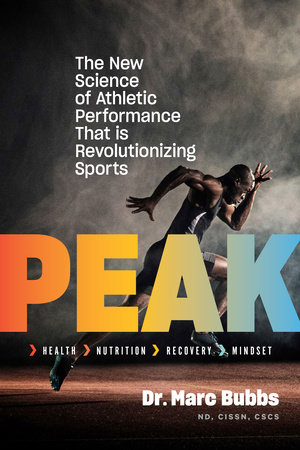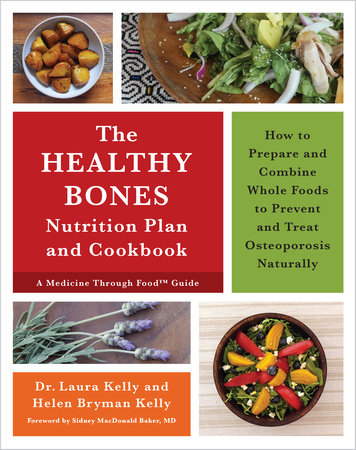The Power of Positive Self-Talk

Are you starting off the new year with an athletic resolution? Maybe you want to get stronger or run faster and further, or maybe you just want to incorporate more movement into your daily life. If this sounds like you, it’s important to remember that your mindset is equally as important as your physical prowess. Starting off with a positive mentality puts you in the right headspace for forward progress, and helps you focus on the task ahead. When working towards a tough goal, your thoughts can be either your best ally or your worst enemy.
The following is an excerpt from Peak by Marc Bubbs. It has been adapted for the web.
Serena Williams is arguably the greatest female tennis player of all time. Serena’s physical strength, power, and quickness combined with her elite technical and tactical skills has made her a favorite in virtually every tournament she entered. But that’s not only what made her a champion. Serena spent long hours harnessing the mental aspects of the game in order to consistently defeat her opponents and win major tournaments. At every match Serena plays, the opposing player brings extra motivation to knock off the champion. When you’re the best, every opponent brings their A game against you. It’s a daunting task that Hall of Fame tennis players like Serena must endure, and physical prowess alone doesn’t lead to the ability to consistently win year after year. Serena uses positive self-talk and “power thoughts” to dial in her focus and keep her confidence high during tennis matches. A few years ago, Serena could be seen during the game change- overs in her matches reviewing a small notebook in her lap:
matches reviewing a small notebook in her lap:
“You will move up”
“You will add spin”
“You are #1”
“You will win Wimbledon!”
If one of the greatest female tennis players, and arguably the greatest female athlete in any sport, needs regular mental practice to be the best, what does it say for the rest of us? The brain naturally defaults to negative thoughts, and if you don’t harness and steer those limiting thoughts, you’ll be hard-pressed to beat your opponents and win consistently. Most tennis experts agree her mental game is what separates Serena from the competition, not simply her physical gifts. Positive self-talk can be a powerful weapon.
Will Hart, PhD, renowned professor at the University of Alabama, un- covered how the language you use to describe your situation—in sport or in life—determines how you actually see it, experience it, and participate in it. Positive self-talk is a proven strategy for boosting confidence, mood, and productivity. It sounds simple, but overcoming negative self-talk is a major hurdle for even professional athletes. Negative self-talk can quickly turn small problems into big ones; it can crush mood, motivation, and as every athlete has experienced at some point . . . performance. Every athlete, no matter how great, has had negative self-talk impact the outcome of a competition. What separates the best from the rest is the elite athlete has the ability to steer their inner monologue in the right direction and wrestle it away from the doubtful subconscious mind. The best athletes can reframe things; they have short memories for poor plays or performances. They get over things quickly.
The difficult part for most athletes is committing the time, and developing the skills, to change their inner voice. The greatest athletes, of course, didn’t develop their killer serve, quick first step, or effortless Olympic lifts overnight. They practiced. Over and over and over again, they practiced. You need to apply the same level of commitment to your mental game. The godfather of modern psychology, Albert Ellis, found that how you talk (and think) about your experiences has a major influence on how you perceive them. Your thoughts are tightly linked to your emotions. Subtle things like, “This is too hard, I’ll never get it” leave you in an anxious or worried state of mind that hinders performance. You probably think this just affects you in the short term, but your self-talk sinks deep into your subconscious. If you begin to internalize negative self-talk, it can become a huge performance roadblock.
 Think of the tennis player who seems to always double-fault in crucial moments. They work hard, practice their second serve religiously, yet it still rears its ugly head at the most critical moment of a big match. Is this really a technical problem, or simply a mental block? Similarly, a weightlifter struggling to hit new personal-best lifts in competition will likely have a very different inner monologue over these attempts during an event compared to training sessions. Why can some athletes perform effortlessly in practice, yet when the lights shine brightest, cannot deliver the same quality performance? Mindset has a huge role to play.
Think of the tennis player who seems to always double-fault in crucial moments. They work hard, practice their second serve religiously, yet it still rears its ugly head at the most critical moment of a big match. Is this really a technical problem, or simply a mental block? Similarly, a weightlifter struggling to hit new personal-best lifts in competition will likely have a very different inner monologue over these attempts during an event compared to training sessions. Why can some athletes perform effortlessly in practice, yet when the lights shine brightest, cannot deliver the same quality performance? Mindset has a huge role to play.
The best sport psychologists will quickly tell you problems are not problems, they’re opportunities. You need to be assertive in your self-talk: “I am . . . I will . . . I embrace . . .” Once you find yourself using the word “but,” you’re turning yourself into the victim. To develop a champion mindset, you cannot be a victim. As the well-known Roman philosopher Epictetus said, “Circumstances don’t make the man, they only reveal him to himself.” You can’t control what happens to you, but you’re 100 percent responsible for how you react to those events. What you do once the dust settles is entirely up to you. Stop blaming your coach. Stop blaming your teammates. Stop blaming your parents. Be willing to make the change. When you draw a line in the sand and say, “I am willing . . .” you transform your circumstances from pitfalls to possibilities and potential. Bruce Lipton, PhD, a world-renowned stem cell researcher, has found 95 percent of what we all do, every single day of our lives, is controlled by our subconscious. Your deepest thoughts, unrecognizable to you on the surface, are driving the path you follow in performance (and life). Positive self-talk is a good start, but the confidence it builds is not a panacea. It also presents its own set of obstacles.
Recommended Reads
Recent Articles
You’ve Been Missing Out! Bone Broth is the ultimate superfood, packed with nutrients and goodness. Consider adding this nutrient-rich, immune system boosting bone broth into your daily diet.
Read MoreThese small fruits are a delicious source of nutrients that you can find almost anywhere. Get started on acorn harvesting with help from these simple tips!
Read MoreWondering what to do with pumpkin seeds? Instead of roasting them, try these alternative ways to prepare & use seeds! Plus a must-try pumpkin granola recipe.
Read MoreTired of trying different traditional medicines to relieve inflammation and joint pain? We have the perfect solution: honey bee venom.
Read MoreBefore yanking out the next patch of lambsquarter you find in your yard or garden, consider trying one of the many edible and medicinal uses of this “super weed.”
Read More









